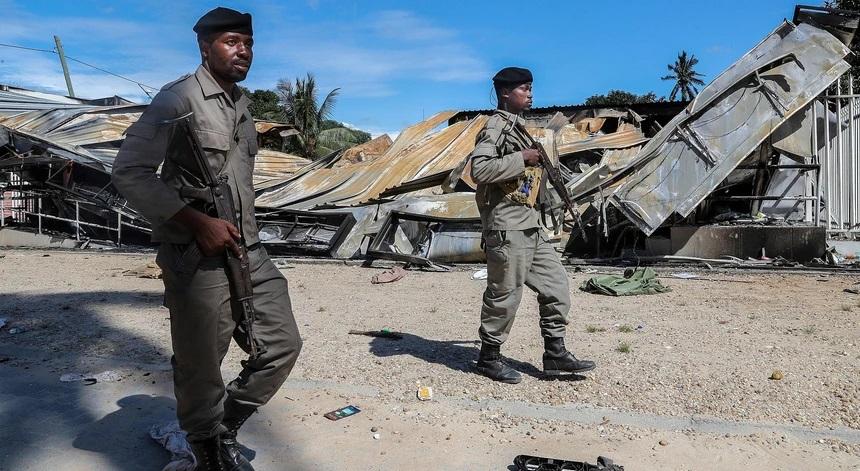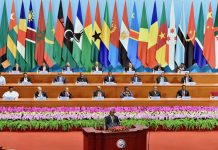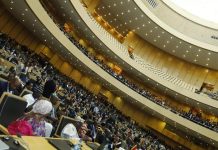Africa-Press – Mozambique. Muanassa Cadre, 57, fled the village of Mocímboa da Praia four years ago, on October 5, 2017, when the first armed insurgency attack took place in Cabo Delgado, northern Mozambique.
An estimated 30 armed elements opened fire on police posts in the coastal town and the surrounding area of Awasse.
The town was besieged while the shootings continued for more than 24 hours, with a total death toll of 17 – 14 attackers, two policemen and one civilian – plus an undetermined number of wounded. This was the start of the internal displacement, victims of which today number more than 800,000.
Among them was Muanassa, who never returned to the town and now lives with three grandchildren in a shack in Cariacó, the most populous neighbourhood in Pemba, the provincial capital.
“I’ve already survived the worst days of my life,” she said, with a smile that hides an everyday life of food insecurity.
One of the few routines she takes for granted is the one that takes her from store to store asking for alms to try to satisfy her and her grandchildren’s hunger.
She walks barefoot, with a braided straw folder to hide what she gathers, she tells Lusa in Kimuani, a local language spoken by many in Mocímboa da Praia.
She says that she would like to go back to her homeland and cast her fishing nets again – her source of income before the war – but she thinks it may still not be safe to return.
After starting in 2017, insurgent attacks spread, reaching Muidumbe, the village that 53-year-old Mateus Kamudye was forced to flee with his wife and five young children, in October, 2018.
First, he found refuge in the home of a relative in Alto Gingone, Pemba, and tried to earn money for the family’s survival selling second hand clothes.
It was a failure, he recalls, and his family continued to rely on a single meal a day – just breakfast, lunch, or dinner so the night wouldn’t be so difficult.
So he took the money he still had, left Pemba and bought a ‘machamba’ (vegetable garden plot) in Mieze, on the outskirts of the provincial capital, there cultivating the crops that have supported the family.
In the last agricultural season, he accumulated “four bags of maize and another three of sesame”, earning himself about 20,000 meticais (€270).
“I have to go to my plot [in Muidumbe], and if it doesn’t work, I’ll come back here, because with the ‘machamba’ I bought, I have guarantees,” he says, happy with what he is now able to gather.
The lives torn apart by the four years of armed insurgency marked this Tuesday invariably bear many wounds, aggravated by the size of the households – both those displaced and those who host them.
Margarida Manda, 39, fled Muidumbe in 2018, also with three children, and with her grandparents (one of her grandmothers is blind) and three nephews, sleeping in the forest for six nights before reaching Mueda, 57 kilometres away.
From there, she headed for the Maringanha neighbourhood in Pemba, and now lives in the house of an unemployed uncle, with everyone’s meals being guaranteed by her aunt, a cleaning lady at the provincial hospital.
“Since I arrived, I’ve been living on aid” from a church and the World Food Program (WFP), she says, regretting not be able to find work and still hoping for the return of some balance to her life.
“The government cannot abandon us,” she says, in the tone of appeal of those who want to see “the war end, in order to return” to Muidumbe.
Luís Sombra Dinjumo, 41, was born in Mpeme, Mueda district, and fled the war with six children, but says tells Lusa with conviction: “I’ll go back. I’m a great farmer, my job is to produce.”
He’s just waiting for the authorities to tell him it’s safe to return to the house he’s always lived in, leaving this one made of bamboo sticks and with a tarpaulin donated by the International Organization for Migration (IOM) in the Chuiba neighbourhood, Pemba.
The provincial capital and the entire southern part of the province have been the safe haven at the end of painful escapes, but where security is paid for at the cost of resources scarcely able to feed so many people.
Cabo Delgado province is rich in natural gas, but has been terrorised by armed rebels since 2017, with some attacks claimed by the Islamic State extremist group.
The conflict has already cost more than 3,100 lives, according to the ACLED conflict registration project, and displaced more than 817,000, according to Mozambican authorities.
Since July, an offensive by government troops with the support of Rwanda, later joined by the Southern African Development Community (SADC), has restored security, recovering several areas from rebel control, such as the town of Mocímboa da Praia, which had been occupied since August, 2020.






